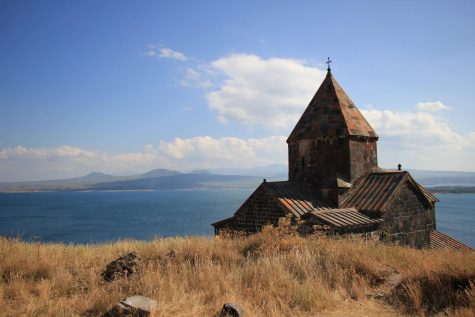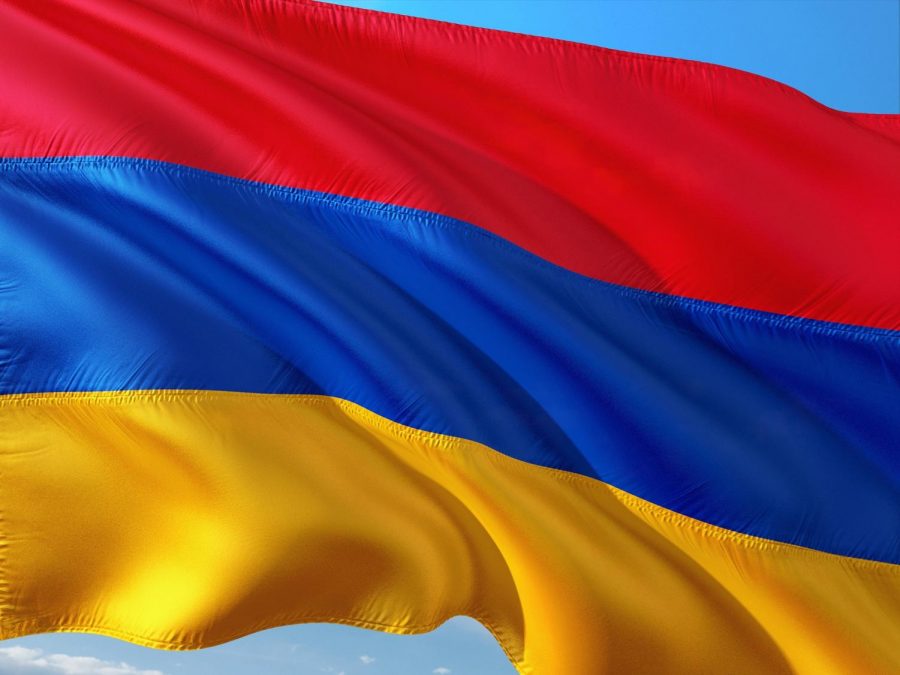Armenian Genocide Officially Recognized by President Biden
April 28, 2021
On April 24, 1915, Armenian intellectuals in Turkey were arrested, marking the beginning of the slaughter of 1.5 million Armenians, rich and poor, young and old. One hundred and six years later, on April 24, 2021, President Biden used the word genocide to describe this systematic extermination, becoming the first U.S. president to officially recognize the event as such. Today Armenian-Americans, like myself, finally witnessed the recognition of one of the most devastating events not just of our history, but of the history of the world. This recognition has just as many implications for the future as it carries amends for the past.
For over 106 years, the Armenian diaspora in America has been waiting for the highest office in our nation to recognize the Armenian genocide. On the anniversary of this horrific event, President Biden released a statement proclaiming, “[e]ach year on this day, we remember the lives of all those who died in the Ottoman-era Armenian genocide and recommit ourselves to preventing such an atrocity from ever again occurring.” This was a bold step that came a little less than two years after both houses of Congress in 2019 recognized the Armenian genocide.
Genocide is defined by the United Nations in the Convention on the Prevention and Punishment of the Crime of Genocide as “acts committed with intent to destroy, in whole or in part, a national, ethnical, racial or religious group” by:
Killing members of the group; Causing serious bodily or mental harm to members of the group; Deliberately inflicting on the group conditions of life calculated to bring about its physical destruction in whole or in part; Imposing measures intended to prevent births within the group; Forcibly transferring children of the group to another group.
Armenians were targeted with violence. Armenians were slaughtered. Armenians were forced on death marches. Armenian men, like my great-great grandfather, and boys were rounded up and executed. My own great-grandfather, who was lucky enough to survive, ended up in an orphanage. All of these actions constituted genocide, and at long last an American president had the courage to call them such.
My great-great-grandfather was murdered in front of my great-grandfather’s eyes. This was the start of how my family’s history was shaped by the Armenian genocide. Before the genocide, both my great-grandfather and great-grandmother were born and lived with their families within the Ottoman Empire, present-day Turkey. Both were fluent in Turkish, but were ethnically Armenian. When the Turks arrived to round up all of the boys and men, my great-grandfather was hastily hidden by his sister to avoid being caught. My great-grandfather and his sister ended up in two separate orphanages, but were able to escape to Sofia, Bulgaria, sometime around 1922. My great-grandmother escaped to Haskovo, Bulgaria, with her brother after the rest of her family was killed. She and my great-grandfather married and eventually made an escape once more, this time from the Soviet Bloc with my grandfather, and settled in America in 1967. At the time of their deaths, the American government had not acknowledged the extent of the atrocities that they had lived through. This country, which had accepted them with open arms and gave them countless opportunities, failed in this case to take a stand for higher humanitarian ideals. These same ideals were a shining beacon of light that led them to this nation’s shores. Today, the death of their families was recognized for what it was, and our commitment as a nation to acknowledge the past and learn for the future was honored.
My great-grandparents’ family members were not soldiers fighting in a war. They were civilians. Too many people today are in the exact same situation. The true power of President Biden’s words of recognition lie in their implications for the future. As I write this, multiple genocides are occurring around the world in such diverse regions as Asia, Africa, and the Middle East. This must end. We must learn from our past and apply lessons from it to our future; otherwise, acknowledgement cannot help bring us forward.
The Armenian genocide is a good example of escalating acts that culminate in genocide, which start with small hateful actions. Stigmatization of the Armenian people began with their Christian faith, which marked them as outsiders in a predominantly Muslim region. Animosity grew during World War I leading to hate crimes, which were followed by forced relocation, and eventually culminated in genocide. We must realize when hate grows around us and deny it what it needs to survive: malice towards someone simply because they are different. We must stop hate in all of its forms, big or small, and we must repudiate hate vehemently worldwide, not only within our own borders. We must look at the Armenian genocide as an example—one that must never be forgotten or repeated again.
Recognition of the Armenian genocide is about so much more than politics. It is about standing up for human rights, honoring those murdered, righting the wrongs of past denial, and using our knowledge of the past to build a better future. My great-grandfather’s dream was to become an American citizen. He believed in the promise of our country so much that he risked all he had in Bulgaria to immigrate here. His wish for citizenship was granted when he was 82. I can only imagine how he would feel about our country today, but as his great-grandson I am brimming with pride, and I’m sure he would be too.









Theresa Varvarian • Apr 28, 2021 at 1:44 pm
Excellent job so proud of you